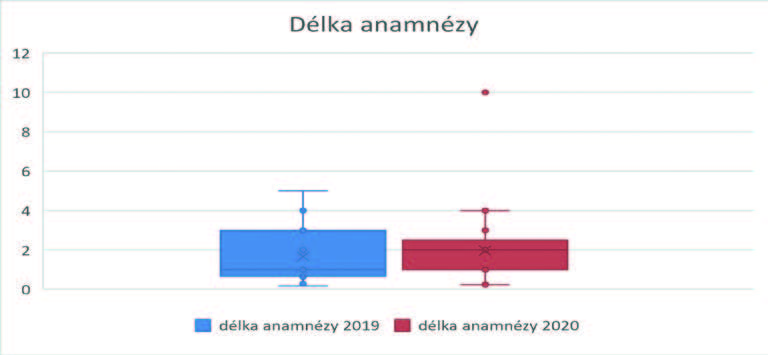Abstract
Introduction: Acute appendicitis (AA) is the most common abdominal emergency. This article aims to document the impact of the ongoing COVID-19 pandemic on timely diagnosis of AA, duration of symptoms before examination in a medical institution, levels of laboratory inflammatory markers, and the length of hospital stay. Collected data were compared with current world literature.
Method: Two datasets were created, comprising patients with the histological diagnosis of AA determined from March 1 to June 30, 2019 (before of the onset of the COVID-19 pandemic) and in the same period of the spring pandemic of COVID-19 in 2020. The following information was obtained from patient medical records: Demographic data, information on symptom duration before AA diagnosis, information on laboratory inflammatory marker levels, the used surgical method, antibiotic treatment, histopathological findings, and the length of hospital stay. These data were processed using descriptive statistics methods and the two created datasets were compared with the use of statistical methods (an unpaired t-test and Welch’s t-test).
Results: Thirty seven patients (26 men and 11 women) with the median age of 41 years were operated on for acute appendicitis at the Department of Surgery, Military University Hospital in Prague from March 1 to June 30, 2019. Thirty four patients (19 men and 15 women) with the median age of 42 years were operated on in the same period of 2020. No significant differences were found between these two compared datasets in terms of symptom duration, laboratory inflammatory marker levels or the length of hospital...

